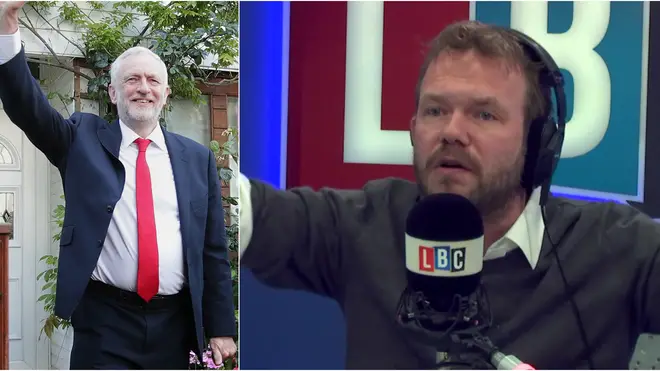
Shelagh Fogarty 1pm - 4pm
9 June 2017, 10:41 | Updated: 9 June 2017, 11:46
James O'Brien says voters wanted to believe things could be better as they flocked to Jeremy Corbyn to leave the Conservatives without a majority.
Theresa May will form a government with the DUP from Northern Ireland after falling short of the magical number of 326 seats.
That's because of a terrific performance from Labour - and James believes this marks the moment the public said no to the way things are in Britain.
Speaking on his LBC show after the hung parliament was confirmed, James said: "What happened yesterday is that for the first time, perhaps, in a couple of decades, a main party leader seemed to speak for people who just believe that things could be better.

"And that if a country has bills to pay they should probably be paid by the richest residents of that country rather than the disabled residents of that country.
"Or the poor residents of that country who have the audacity to have an empty bedroom in their council property.
"Or the nurses with the pay freeze, the police officers that we all get desperately dewey eyed and sentimental about when they save us from terrorist atrocities but oddly the wax in our ears expands to fill all available space whenever they turn to us and complain about cuts or ask if perhaps they could be paid a decent wage for risking their lives on our behalf every day.
"And the rhetoric of bash the bankers when the magic money tree did suddenly create billions and billions of pounds that was used to plug up holes in banks that had led us to the precipice of economic disaster.
"I'm probably getting a little bit carried away. I am far from a Corbynista, but I'll tell you why I have a strange sense of optimism in my heart this morning.
"It's simple, it's a little bit cynical and it's strangely sudden, but I think we might be witnessing the beginning of the end of the chomping, divisive, deceitful, hate-filled media that has typified British journalism and British life for the last 25 years."